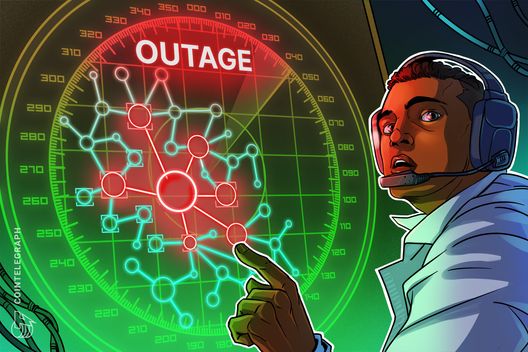A recent Cloudflare outage that disrupted access to multiple cryptocurrency platforms has reignited the debate about true decentralization in the blockchain industry. While many projects boast decentralized infrastructure at the protocol level, their reliance on traditional Web2 services for frontends and data storage creates critical vulnerabilities that contradict crypto's foundational principles.
The cryptocurrency industry received a stark reminder of its centralization vulnerabilities when a Cloudflare outage brought several prominent blockchain platforms to their knees, despite their underlying networks continuing to operate normally. The incident has sparked renewed calls for comprehensive, end-to-end decentralization across the entire crypto ecosystem.
EthStorage, a decentralized storage solution provider, emphasized that while many blockchains operate on genuinely decentralized networks, they remain dependent on Web2 infrastructure for critical components. User interfaces, application frontends, and data storage frequently rely on centralized services like Cloudflare's content delivery network, creating single points of failure that can render otherwise functional decentralized applications inaccessible.
The irony is striking: projects built on censorship-resistant, permissionless blockchain technology can be effectively shut down by outages at traditional tech companies. When Cloudflare experienced technical difficulties, users found themselves unable to access platforms even though the underlying blockchain networks continued processing transactions without interruption. This disconnect between backend decentralization and frontend centralization represents a fundamental architectural weakness.
Industry experts argue that true decentralization requires addressing every layer of the technology stack. This includes deploying decentralized storage solutions for static assets, implementing peer-to-peer frontend hosting mechanisms, and reducing dependency on centralized DNS systems and content delivery networks. Several projects are already exploring alternatives, including IPFS for distributed file storage and decentralized domain name systems.
The challenge extends beyond technical implementation. Centralized services like Cloudflare offer significant advantages in terms of speed, reliability, and user experience that decentralized alternatives currently struggle to match. Development teams face difficult tradeoffs between performance optimization and maintaining ideological consistency with decentralization principles.
This latest outage serves as a crucial learning opportunity for the industry. As blockchain technology matures and seeks mainstream adoption, addressing these infrastructure dependencies becomes increasingly urgent. The path forward requires continued innovation in decentralized alternatives that can compete with Web2 services on performance while delivering on crypto's core promise of resilience through decentralization. Until then, the crypto ecosystem remains vulnerable to the very centralized failures it was designed to eliminate.
